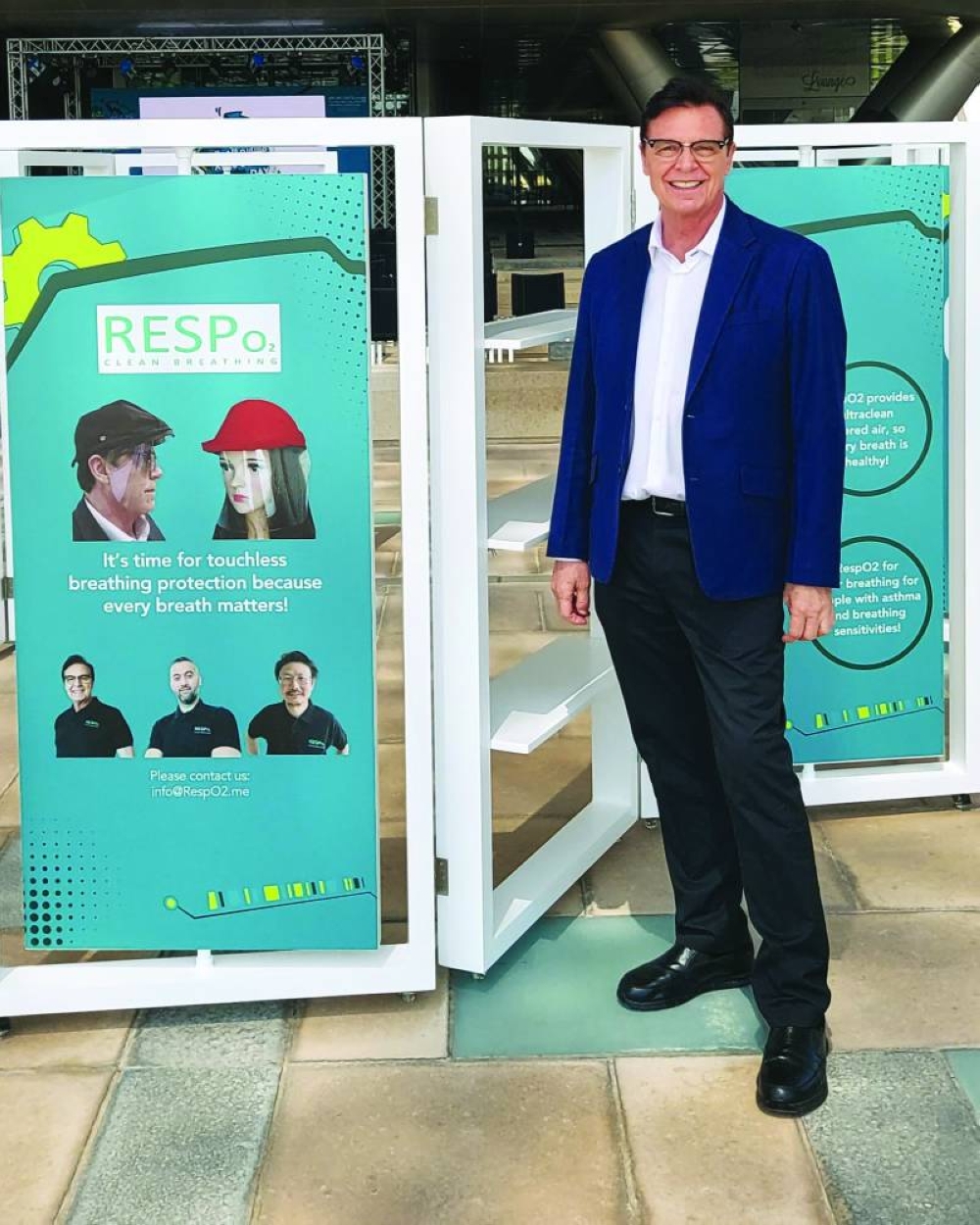XLR8, Qatar Science and Technology Park (QSTP)’s 10-week training and mentorship programme, has supported the development of a unique breathing protection apparatus.
Five years ago, Dr Geoffrey Hicks, director of Health, Safety, Security and Environment at Qatar Environment and Energy Research Institute (Qeeri), Hamad Bin Khalifa University (HBKU), had an innovative idea to improve breathing protection for cyclists in Qatar. As he pursued the idea and worked on potential solutions, the world was hit by the Covid-19 pandemic.
“This is when I realised that personal breathing protection was essential in a much broader sense, and I began digging deeper into the issue of microparticulate air pollution,” Dr Hicks recalled.
Research insights and his personal experience with breathing sensitivities causing occasional hospitalisations, prompted Dr Hicks to create the first prototype: a simple, wearable cap with a visor and an air filtration system to protect people from micro particulates, including airborne allergens and pathogens.
“The first version we built was similar to a baseball cap, but the trouble was that it was a bit weighted at the front,” he said. While the device utilised a compact air filtration system, understanding ways to improve its design and learning how to reach potential customers was key at this stage of Dr Hicks and his teams’ innovation journey.
With this ambition in mind, Dr Hicks and his business partner, engineer Majdi Albaghdadi, who also works at Qeeri, joined Cycle 13 of the XLR8 programme in 2022 where they received mentorship and training to improve the product – ‘RESPO2.’ The training allowed them to refine the business model, build customer traction, and launch the go-to-market strategy.
“We essentially went back to the drawing board with XLR8 and received some great feedback and learned a lot. We had the chance to practice our pitch, listen and learn from other participants, self-reflect and also critique constructively,” said Dr Hicks, adding that he appreciated the mentorship from industry leaders, many of whom were successful entrepreneurs.
According to Dr Hicks, the insights from the programme led to further enhancements to RESPO2. In comparison to its previous variations, the current version is much lighter so it can be easily worn over cycling helmets. The visor features Z87 polycarbonate, which is 200 times stronger than glass, making it virtually shatterproof, and it now has a hinge system allowing the user to pull up the visor easily. RESPO2 employs High Efficiency Particulate Air (HEPA) filtration to ensure that each breath the user takes is filtered and ultraclean.
Mohamed Zebian, program manager – Acceleration at QSTP, said: “In arid regions such as the Middle East, the health challenges around airborne pathogens and dust allergies are persistent. Innovation can play an important role in helping tackle the issue and so we need innovators like Dr Hicks and his team to develop solutions, such as RESPO2 that have potential for real-world impact. However, innovators often lack the experience to make progress as an entrepreneur and this is where our XLR8 programme offers essential guidance.”
Cycle 14 of the XLR8 programme will start from December 27, 2023.

Dr Geoffrey Hicks, director of Health, Safety, Security and Environment at Qatar Environment and Energy Research Institute (QEERI), Hamad Bin Khalifa University (HBKU).
